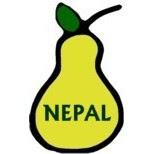Instead, the children were put up for adoption abroad — a highly lucrative business in impoverished Nepal, where campaigners say orphanages can make up to 10,000 dollars from each child.
By the time Nepali returned to retrieve the children his three-year-old daughter Karuna had already been placed in the custody of an American couple who were applying for a visa to take her to the United States.
“The names of my son and daughter had been changed, and they had been declared orphans. I was so shocked,” Nepali told AFP in an interview in the one-room house in Kathmandu where the family now lives.
“The people who run the orphanage told me I could not even see my son and daughter because it might affect the other children.
“Then some local people told me that pictures of my children had appeared in the newspaper under fake names. With their help, I found out that both my children had been put up for adoption abroad.”
Eventually, Nepali and his wife Maya managed to get their six-year-old son back from the orphanage.
But it was not until the couple filed an official complaint with the help of a local charity that they discovered their daughter Karuna’s whereabouts and she was finally returned to them.
Child protection groups say the family’s ordeal is only the tip of the iceberg in Nepal, where unscrupulous agents are effectively trafficking children to foreign couples for large profits.
Nepal introduced new legislation in 2008 to try to prevent such abuses, and only restarted international adoptions last year under the new system.
But campaigners say widespread problems persist, and last month a team of legal experts from The Hague called for international adoptions of Nepalese children to be suspended.
They said their investigations found documents were routinely falsified and children’s homes were largely unregulated, with the interests of the child often not considered at all.
United Nations children’s agency UNICEF said little has changed since a 2008 report found that around 60 percent of the children up for adoption in Nepal were not genuine orphans.
“The best interests of the child are still not at the centre of these adoptions and these must be the guiding principles for all those working with children, no matter how complex the issue,” said UNICEF Nepal representative Gillian Mellsop.
UNICEF has called for the government to ratify the Hague convention on international adoptions, which sets out guidelines and procedures to safeguard children and their parents against abduction and trafficking.
In all, 20 children from Nepal have been adopted by foreign parents since the system restarted last year.
Seven have gone to the United States, but the US State Department this month warned prospective adoptive parents that the system in Nepal was “not yet reliable,” citing the case of the Nepalis.
Germany moved to suspend adoptions from Nepal after the findings of The Hague team’s investigations were made public, and 14 foreign embassies issued a statement urging the government to tighten controls.
Authorities in Kathmandu have banned the children’s home that took the Nepalis’ children from arranging international adoptions for the next two years.
But the orphanage, called Ashaya Balbalika Samrechhan Griha (Helpless Children Protection Home), remains open.
Sarvadev Prasad Ojha, minister for women and children, admitted that the government lacked the resources to prevent abuses of the system.
Ojha said poor parents in rural areas were being fooled into giving up their children for adoption by agents who claim to be taking them to Kathmandu for education.
“We have been closely monitoring the activities of those organisations. We have also closed down 14 children’s homes that did not meet minimum standards,” he told AFP in an interview.
“But we still don’t have adequate resources to monitor outlying rural areas, and this allows children to be taken by criminals.”
Campaigners say the system remains riddled with corruption, and allows orphanage owners themselves to decide whether a child can be put up for adoption — a clear conflict of interest.
Karuna’s mother Maya, who still lives a stone’s throw away from the orphanage that took her children, accuses the owners of “trying to take advantage of our poverty and illiteracy.”
“I could never think of allowing my children to be taken abroad,” she said. “They are my babies, I gave birth to them. How could I give them away?”
http://www.france24.com/en/20100302-nepals-stolen-children-highlight-flawed-adoption-system
Ethics, Transparency, Support
~ What All Adoptions Deserve.
http://www.pear-now.org/
